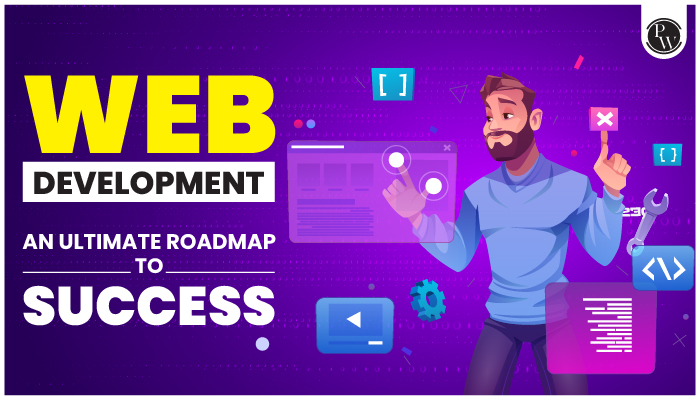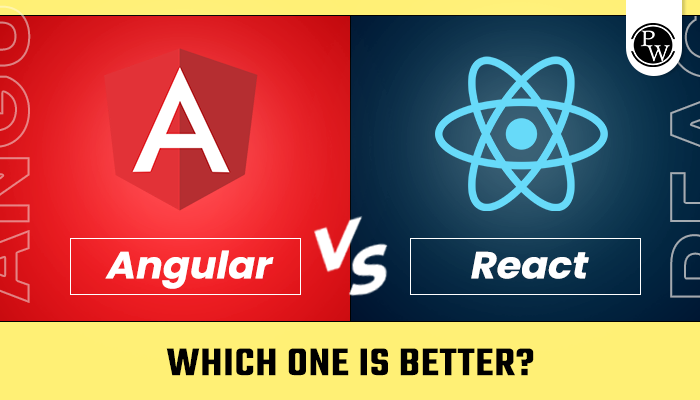Web Development Bootcamp is an ever-growing field, and as more and more time is spent online, the demand for skilled web developers only continues to rise. If you are interested in pursuing a career in web development?
A boot camp is a great way to acquire the necessary skills and knowledge quickly. Similarly, these boot camps offer an intensive, hands-on curriculum designed to help you seamlessly shift into a new career or take your existing skills to the next level.
In this article, we will provide the benefits of a web development course boot camp and provide you with helpful tips on selecting the right program for your career goals and aspirations.
So, get ready to embark on a thrilling journey and fast-track your career as a web developer.
What Is A Web Development Bootcamp?
A web development boot camp is an intensive and accelerated learning program that teaches the skills necessary for a career as a web developer.
However, these boot camps typically cover topics such as
- HTML,
- CSS,
- JavaScript,
- React,
- Node.js,
- And other technologies used in front-end and back-end web development.
The goal of a boot camp is to give participants a strong foundation in web development, with an emphasis on hands-on, project-based learning and a focus on practical applications. Bootcamps often last several weeks or months, and some provide job placement assistance to graduates.
How Beneficial Is a Boot Camp
Benefits of a web development boot camp include:
-
Accelerated learning:
Such programs provide a fast and intensive way to learn the skills necessary for a career in web development.
-
Hands-on experience:
Bootcamps often use project-based learning, allowing you to gain practical experience in web development.
-
Relevant curriculum:
These programs focus on the technologies and skills used in the industry, ensuring that what you learn is relevant and up-to-date.
-
Career support:
Some boot camps offer job placement assistance, helping you transition into a web development career more easily.
-
Networking opportunities:
Bootcamps bring together students with a common goal, allowing you to network and build relationships with others in the field.
-
Mentorship:
Bootcamps often have experienced instructors. They serve as mentors and provide guidance on your career path.
-
Cost-effective:
Compared to a traditional four-year college degree, boot camps are often more affordable and provide a quicker return on investment.
-
Flexibility:
Many boot camps offer full-time and part-time options, making balancing learning with other responsibilities easier.
-
Focus on practical applications:
Such programs emphasize the practical application of web development skills, allowing you to gain hands-on experience building real-world projects.
-
Small class sizes:
Bootcamps typically have small class sizes, which helps in allowing for more individualized attention and support from instructors.
-
Immersive learning environment:
They provide a fully immersive learning experience, allowing you to focus solely on web development and quickly achieve your goals.
-
Career change:
Bootcamps offer a way for individuals looking to transition into a career in web development to acquire the necessary skills and knowledge quickly.
-
Job opportunities:
The demand for web developers is high, and a boot camp can help you stand out in a competitive job market.
-
Continuous learning:
Bootcamps often give more importance to continuous learning and provide resources for ongoing professional development.
-
Supportive community:
They often foster a supportive and collaborative community. Which, however, helps an individual to connect with and learn from others in the field.
Factors to consider while choosing a web development boot camp
When choosing a web development boot camp, consider the following factors:
-
Curriculum:
Look for a boot camp with a comprehensive curriculum that covers the technologies and skills used in the industry.
-
Instructor experience:
Choose a boot camp with instructors with real-world web development experience and a track record of helping students succeed.
-
Job placement assistance:
Look for a boot camp offering job placement assistance, including resume building, interview preparation, and employer connections.
-
Project-based learning:
Choose a boot camp that emphasizes hands-on, project-based learning to ensure you gain practical experience in web development.
-
Class size:
Consider the class size, as smaller classes may provide more individualized attention and support from instructors.
-
Learning Format:
Choose a boot camp that offers a learning format that works for you, such as full-time or part-time, in-person or online.
-
Cost:
Consider the cost of the boot camp and compare it to other options, including traditional four-year college degrees. Whatever suits you best, you go for that.
-
Reputation:
Look for a boot camp with a strong reputation and positive reviews from past students and graduates.
-
Networking opportunities:
Consider the networking opportunities offered by the boot camp, including events, guest speakers, and the ability to connect with alumni.
-
Post-graduation support:
Look for a boot camp that provides ongoing support after graduation, including continuing education and resources for professional development.
How Boot camp helps in your career
From a web development boot camp, you can expect to learn:
-
Front-end development:
You will learn how to build user-facing web pages using HTML, CSS, and JavaScript.
-
Back-end development:
Will teach you how to build server-side applications and work with databases using technologies such as Node.js and Express.
-
React
This program will learn how to build dynamic, interactive web applications using the popular JavaScript library, React.
-
Web development frameworks:
You will learn how to use frameworks such as Ruby on Rails or Django to build web applications.
-
Agile development methodologies:
Agile development methodologies compromise on how to apply them to web development projects.
-
Version control:
Students will learn how to use version control systems, such as Git, to manage code and collaborate with others on web development projects.
-
Design and user experience:
One will learn about design and user experience principles, including how to create user-centred designs that are accessible and responsive.
-
Problem-solving:
This will help you to understand how to use critical thinking and problem-solving skills to solve complex technical problems and build successful web applications.
-
Best practices and industry standards:
You can adapt best practices and industry standards for web development, including security, performance, and accessibility from this program.
-
Career development:
Students will learn about career opportunities in web development and how to build a strong professional portfolio to showcase their skills.
Jobs to get into web development boot camp
Graduates of a web development boot camp have the skills and knowledge required to pursue several careers in the web development profession.
Some of the most popular jobs for Bootcamp alumni are
- Junior Web Developer
- Front-end developer
- Full-Stack Developer
- Web Development Engineer
- UI/UX Designer
- Web Designer
- React Developer
- Angular Developer
- Vue.js Developer
- Software Engineer
- Web Development Project Manager
- Web Development Trainer or Educator
These positions are available in a range of industries, including technology, consulting, advertising, and e-commerce, to name a few. Bootcamp alumni can also freelance or establish their web development firm.
Job prospects will vary depending on geography, industry needs, and the individual’s abilities and experience.
Is Boot Camp More Beneficial Than Traditional Teaching?
Bootcamps are becoming increasingly popular for tech professionals seeking career changes. A report showed that 48% of business leaders and 56% of those from tech companies believe that boot camps will play a crucial role in future workforce training.
Similarly, they offer technical skills, career services, and a faster, more affordable way to enter the workforce, with comparable salary potential to traditional college graduates.
However, boot camp graduates may not be eligible for senior positions, but they acquire a competitive skill set for entry-level positions, and they are sought after by top tech companies.
Wrapping up
A web development boot camp can be the fast track to a career in web development.
The immersive and intensive nature of these programs allows you to learn the skills and technologies used in the industry quickly. However, by focusing on hands-on, project-based learning, you can gain practical experience that is directly applicable to real-world web development projects.
Additionally, many boot camps offer job placement assistance, which can help you find a job in the industry more quickly. Lastly, it is important to keep in mind that a boot camp is just the first step in a web development career. This is why continuing learning and professional development are crucial for success in the field.
Frequently Asked Question
Q.1 Is a web development boot camp worth it?
Ans. Boot camp may help you find work. According to the CIRR, more than 70% of coding boot camp alumni find work in the IT industry within 180 days of graduation.
Q.2 Does Google hire boot camp grads?
Ans. Yes, Google has hired graduates from boot camps in the past.
However, as with any company, hiring practices can vary and are subject to change.
Q.3 Are There Any Requirements for Enrolling in a Web Development Bootcamp?
Ans. The requirement depending on the boot camp, varies.
Some boot camps begin with competency evaluations (both verbal and quantitative). Others may ask you to perform some preliminary work before proceeding. However, most do not require any technical knowledge to get admitted.




